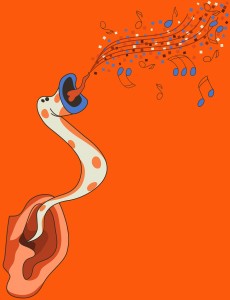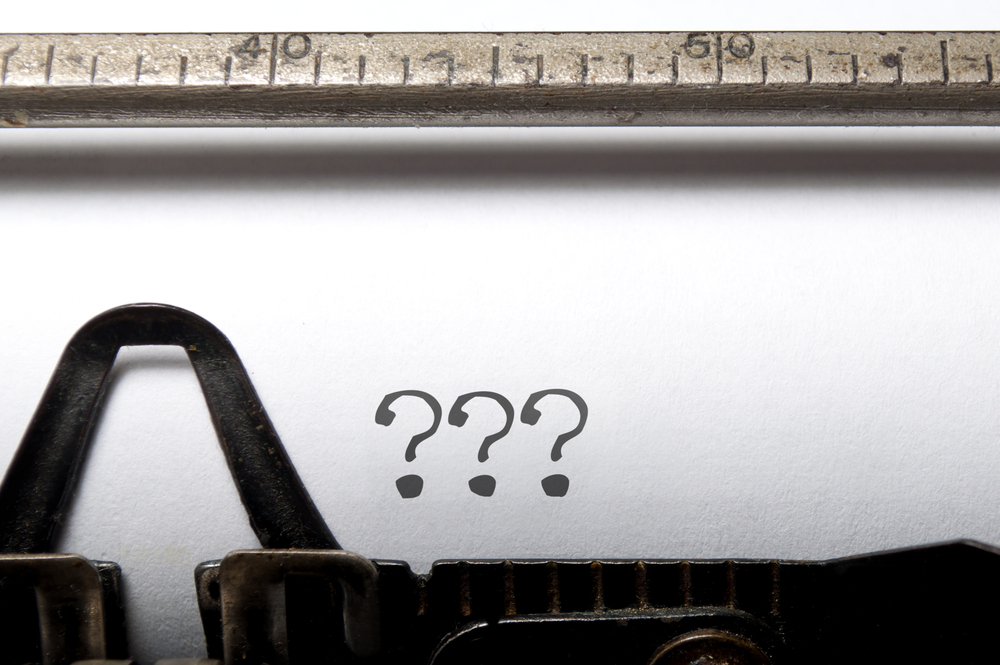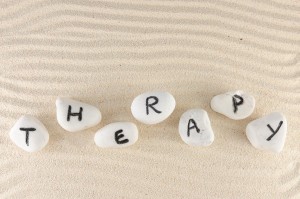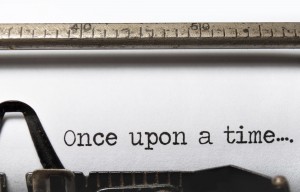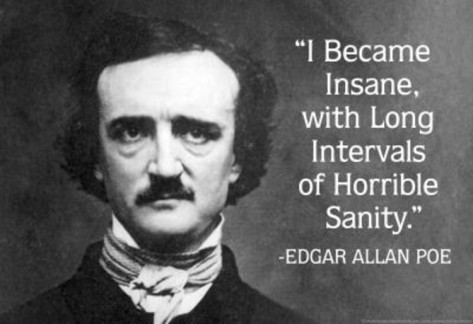 There is such a thing as being in love with your diagnosis; besotted by psychosis.
There is such a thing as being in love with your diagnosis; besotted by psychosis.
I have noticed a trend in many people who suffer from mental illnesses—including myself—to freely share with others, often people they have only just met, the fact that they are both mentally ill and taking strong medications, in particular anti-psychotics, in order to manage their condition. This does not apply to everyone (nothing ever does) but certainly some people appear to relish telling others that they are on anti-psychotics and, by so doing, that they are or have at some point been, psychotic. They wear this fact like a medal, showing with pride that they have come through something horrendous, something most people (thankfully) never have to face and can’t really understand. A war veteran, home from the front.
I believe it goes deeper than this, however, far deeper than the relatively simple need to announce to the world that yes, despite all the odds, you are still alive. You survived. I believe for many people, it is not that they are ‘showing off’ their condition, it is more that their diagnosis has become so irrevocably tied to their identity, to their sense of ‘self’, that when they are interacting with others and introducing themselves to new people, talking about their condition, even if only in passing, is unavoidable.
This is certainly not the case for everyone; many people find it incredibly difficult to discuss their condition.
I am not one of those people.
The merging of diagnosis and identity can be both a positive and negative thing. I have personally found, since being diagnosed, that knowing my condition and exploring the extreme extent to which it has affected almost every aspect of my life, for the better part of two decades, helps me to understand myself better, my past better, and to come to terms with and let go of some of the more damaging memories in my possession; memories which have, until relatively recently, refused to die. It is both comforting and enlightening to know that certain phases of my life were exacerbated by my condition, that certain decisions and situations I have never been able to understand, were actually caused by the changing chemicals in my brain, rather than a deficiency in myself, as a human being. I have become more at peace as a result of this, and find that, the better I come to understand, the less I despise myself.
These are the positives.
The flip-side (isn’t there always a flip-side?), is that I become so fixated on analysing my mind and moods and behaviour, that I often forget there have actually been periods in my life when I wasn’t either depressed or manic. Certainly in my early teens I never experience the rapid cycling moods to which I became accustomed in my late teens and twenties. I had ups and I had downs, certainly, but they were never as pronounced, never as protracted, and they almost always came with lulls in between—times when I was, for want of a better word ‘normal’. At least in so much as a young teenage girl can ever feel normal. I had problems, but they had nothing to do with my condition. Even later, there were times when I was not depressed, or manic, or psychotic, I simply was. It’s easy to lose sight of this and forget there were times when I had friends, and jobs, and hobbies, and was successful in my endeavours, comfortable in social situations, capable of functioning like most other people.
I know enough people now, suffering from bipolar or other mental illnesses, to know that this is a common development.
And it can be crippling.
It is as if being depressed, bipolar, schizophrenic, psychotic etc. has become so much a part of how we perceive and define ourselves that the notion of there being any form of ‘self’, existing without the illness, is foreign to us; it’s alien. Some people even rile at the use of the word ‘illness’. I am one of those people, at least when it comes to myself, for I do not like the connotations, the notion that being bipolar makes me ‘ill’, it makes me in some way ‘wrong’. It is the thought that other people see me as being less than I should be. It is the thought that, as a consequence of this, they only accept what I am when I am neither depressed nor manic. If I am one way or the other I am in some way ‘not myself’.
Who am I then, at these times, if not myself?
There is an inherent contradiction here in that, while I am capable of acknowledging the downsides of both depressive and manic states, while I am capable of realising they can be unhealthy for me and that I must seek help to manage my condition, while I am now, reluctantly, even willing to take very strong medication to aid me in that management, I would never, ever, think of myself as being less than myself while depressed or manic. Those states of being are still ‘me’; in fact they are the versions of me with which I am comfortable, familiar, because I understand them far better than I understand this thing called ‘normal’.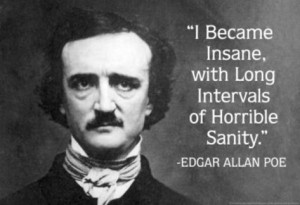
There is a famous quote from one of my favourite authors, Edgar Allan Poe: ‘I became insane, with long intervals of horrible sanity’. I have always loved this quote. Long before I was diagnosed with bipolar, a condition Poe himself is suspected of having suffered, I had that quote scribbled in my notebooks and written in lipstick on my bedroom mirror. It resonated with me, from a very young age. I think I was perhaps ten or eleven when I first came across it, and even then, I somehow felt what it meant for me.
Insanity is relatively easy to deal with, if you are as accustomed to it as I have become. By ‘insanity’ I refer to those periods when I have been either depressed, manic, or in particular psychotic, those times when others would tell me I ‘wasn’t myself’ and I would wonder who else I could possibly be. Depression is a separate kind of insanity I feel, for it is the definite negative area of the complex condition known as bipolar. Mania and psychosis are two entirely separate things, and from my own experience of them, can have both positive and negative consequences. Certainly I find I enjoy my manic phases, I experience a clarity of thought during those times which eludes me the rest of the time. The trouble comes when the mania goes beyond my own thought processes and niggling physical side effects such as keeping me from sleeping or eating, and results in some very dangerous behaviours. Psychosis is often extremely unpleasant, however it depends upon the form it takes. Many people find it comforting. Others find it is what they need to get through the day. I have found it, at different times in my life, terrifying beyond description and the safest I have ever felt in my life. Psychosis is not a thing easily explained, nor is mania, yet they are states that become very familiar to a person, and—like depression—the more familiar they become the easier it is to remain in them, even when you don’t particularly enjoy their effects.
There is a safety in being either depressed or manic. You know what to expect, and you know what is expected of you. That contradiction comes in again, for while I hate people perceiving me as being ‘ill’ and ‘not myself’ when I am in these states, it does give you carte blanche to some extent: no matter what you do, no matter how crazy you appear, no matter how little you manage to achieve, no matter what your appearance or manner, it all falls beneath that great banner of ‘insanity’. You are forgiven. You are absolved. You can screw up as much as you like, and the majority of people will understand that this ‘isn’t your fault’ because you’re ‘ill’. It is often far easier to remain in these states than it is to try and cope with the state that falls between the two poles, that elusive state of ‘normality’. That is not for one second to suggest that depression, mania or psychosis are pleasant, merely that they are familiar, more familiar than ‘normal’ ever could be because this is the state of which I now have the least experience.
Normality is what frightens me.
It is mundane, ordinary, the discovery that there is nothing special about me, something which I fervently believe when I am manic and psychotic and can even acknowledge to some extent when depressed. Normal is just like everyone else and, just like everyone else, if I am normal I have normal responsibilities: a job, rent, bills, acting in a socially acceptable manner. And if I am just like everyone else, I can fail just like everyone else, and this then might push me be back into the very states of being I both fear and oddly embrace. Mania, certainly, has its intoxicating allure. Even depression at times can feel like the safest option: shut down, stay down, it’s quiet down there, it’s immobile, you won’t move forward but neither will you move back. You can’t fail. You can’t be hurt, unless you hurt yourself. When you have lived a life of repeated failure and heartbreak the prospect of the latter is very appealing. I often find myself embracing mania, as it allows me to do the things I wish to do—I get so much work done, I embark on so many new projects, I do all the things I completely fail to do when depressed and far more than I could ever achieve if I were simply ‘normal’. The flip-side (again) is that mania for me now always ends with a crash; if I want to enjoy the manic periods, I must also endure the depression. I am only slightly ashamed to admit that at times it is only the thought of my next manic phase which allows me to make it through the depression relatively unscathed. This is the reason I refused to allow my psychologist to switch my MEDs to Lithium despite the fact what I currently take does not stop my swings in moods: Lithium would stop my depression, a plus, but it would also rob me of my mania. It would leave me permanently ‘normal’ and that is not something I am willing to become. The reason for this is simple: I would not then be myself.

What does this mean then, for my recovery? If getting ‘better’ means moving away from those states in which I feel like myself and towards the one state in which I feel like I’m ‘not myself’, how can I reconcile that? Taking the medications prescribed for me has certainly helped, I do not find myself at the very dangerous extremes I was experiencing previously, however I have found that I no longer recognise myself. Last week I talked about looking in the mirror and seeing someone else stare back. Some of this is the result of very long periods of depression, but some is the direct result of my attempts to recover from that depression.
I am currently attempting to lose weight, and moving towards living on my own again. I find, as I make progress in both these areas, that at times I am actually sabotaging my efforts. Self-sabotage. I see that my weight loss is going well, and I panic; what happens when I’ve lost all the weight, when I am healthy and back to looking like myself again? I’ll no longer have the buffer between me and socialising that currently protects me.
I often feel that I have purposefully built up this massive amount of weight around me, as a wall to shield myself from pain. In particular, a wall to shield me from people. I complain that I do not have the confidence to socialise due to my insecurities about my weight, yet I also do not want to socialise, if I am completely honest, due to a far deeper fear that things which have happened in the past will reoccur. Friends abandoning me when they see me acting in ways that are ‘not like myself’, romantic relationships going horribly wrong, and even, if I’m completely honest, the prospect that hypersexuality will once again set in. The worst period of my entire life happened when I was suffering from hypersexuality. It destroyed everything I had. It left me a rock bottom. It is the one thing about mania that absolutely terrifies me. But, if I stay so overweight, I need not fear; nobody would want me anyway.
This is a terrible thought for all kinds of reasons, but there it is. Similar to this is the thought of living alone. I’ve lived alone before, and it didn’t end well. I lost my job, found another, lost that too, found another, but still was unable to keep up rent and bill payments due to my excessive overspending and total inability to budget. The thought of that happening again, after I have spent the last two years trying to unravel the financial mess I was in, is terrifying, as is the thought of finally getting a place of my own and then losing it, is heartbreaking.
Better not to try than try and fail.
I have been wrestling with this for some weeks now. The diet which initially went so well and saw me lose over a stone hit a stall when I realised I’d lost twenty pounds and I might actually succeed. I regained five of those pounds almost overnight. I thankfully managed to recognise what I was doing and prevent the re-gain from becoming worse, but for two weeks it was all I could do to maintain my weight, there was no hope of me losing any. At the same time while everything appeared to be falling into place with my new business, and the prospect of moving out became a solid reality, within the next few months, I began to question everything, from whether or not I could cope with the business, to whether or not I should accept the Start Up loan I was offered to help me with it, to whether I should even be thinking of moving out at all, or if it weren’t better off staying with my mother.
It was the latter thought that finally broke through to me. Much as I love my mum, I do not love living with her. I have no independence. She drives me round the bend. Clearly, I wasn’t thinking rationally.

I am pleased to report that, with all this in mind, I have managed to lose just over four pounds this week. I am still afraid of what will happen if I ever do manage to get back to a state in which I feel comfortable socialising, however I am more afraid of spending the rest of my life alone and miserable. Things with my business are moving forwards, and while I’m still struggling to manage my own personal budget well enough to feel confident in living alone, I have improved considerably.
The next challenge to tackle is my PhD.
The one thing that has hit me with crystal clarity as a result of all this is that I have avoided it. I do everything I can in order to get out of working on it, because I am terrified of finishing it. I no longer feel I am capable of working in an academic setting, so much so that I didn’t even last the first year of my Scholarship living in Bangor. I took myself away from it. My former dreams of working at a University when I finish have vanished as a result. I do not feel I could possibly cope, therefore I do not want to finish my thesis, as this would mean I was expected to DO something with the qualification.
Hopefully, this realisation in itself will now aid me in getting on with it.



